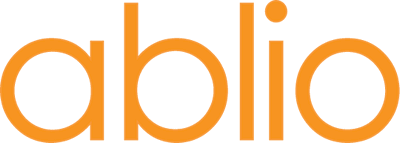The Machines Are Coming

It isn't unusual for a person to feel nervous in the face of technology. There are legitimate fears associated with any change in the status quo, and interpreters are not immune. In fact, interpreters are part of an industry that is acutely aware of technology and the effects that it has upon their jobs, their employers, and the entirety of their field.
But technology doesn't need to be scary. It's actually a good thing, especially if you have a support system in place, reminding you that technology enhances, rather than destroys, the important role you play in societal communication.
The Big "Bads": The System and the Machines
In any capitalist system, far-reaching agencies develop to control a thick slice of the market. This leaves a large portion of the labor force toiling away for a mockingly cheap wage. Language services isn't the only field that places highly qualified individuals in precarious employment. The same is true for adjunct instructors in academia. Like adjuncts, interpreters also occupy a field that can be uncertain. You know that you are a gifted, educated employee with a lot to offer, and yet, you may think that the big business is only going to eat you up and spit you out. But, it doesn't have to.
Instead—or in addition—you may be chilled by the thought that machines are taking over the world, and your job along with it. Perhaps, you picture, with terror, smart phones, computers or tablets in your role. Alternately, the very thought of technology could push you into denial; you just know that a machine could never do your job. The reality is that neither fear nor denial is the correct approach to technology.
Yes, there is a financial incentive to replacing human interpreters with machines, and corporations and the government are desperate to crack that code. But, it isn't happening right now. Someday, it may. When that day comes, you will be better served by having accepted change and connected with developers than you will be by living in fear or denial. Be conscious of the wonderful boons that come from high-tech innovation in our field, and stay engaged in productive conversations with employers, innovators, and clients.
Sweet Dreams
When conquering your fears, there are two basic foundations upon which to build: the personal and the professional.
It's time to personally embrace technology. Tablets, laptops, and smart phones; webinar platforms; search engines, databases, and even translation apps and programs provide you with opportunities to learn and to improve the overall quality of your work. Be grateful that the Internet allows you to access language dictionaries without having to lug them about and to access electronic documents, alleviating fears of losing them, forgetting them, or spilling coffee on them. Also, professional associations and private sector companies are making it more convenient than ever to earn continuing education credits. Language maintenance isn't a chore when you have every opportunity you choose to remain fluent.
On a professional level, it is important to seek out avenues and companies that support your connection with innovation. Ablio is just such an opportunity. Because Ablio customers connect via their phone, computer, smartphone or tablet, you will be well versed in current technology and its development. Additionally, you keep track of your work and payouts by accessing an online dashboard and you set the times you are available to work online, as well. Because Ablio is a digital marketplace, matching customer service requests with service providers, you won't be competing and trying to offer the lowest rate available, as some online agencies force you to. You will be supported and given a coach who helps with strengthening both your connection to tech and your representation in the market.
Interpreters have occupied a field that has always hinged upon advancements in technology. Now is the time to expand your client base and remain relevant in a growing and changing linguistic services market. Next time you face tech, ask yourself how you can benefit from it, rather than fear it.
Using state-of-the-art IT & telecommunication technologies, ablio makes language interpretation services easily available to everyone, in any context, by creating tools and service platforms that are supported by its own community of live interpreters.
For further information please visit our websites:
● ablio.eu – General Website
● ablio.com – OPI Platform
● ablioconference.com – Simultaneous Interpreting Platform

